A new report has found that hospital admissions for alcohol poisoning are up.
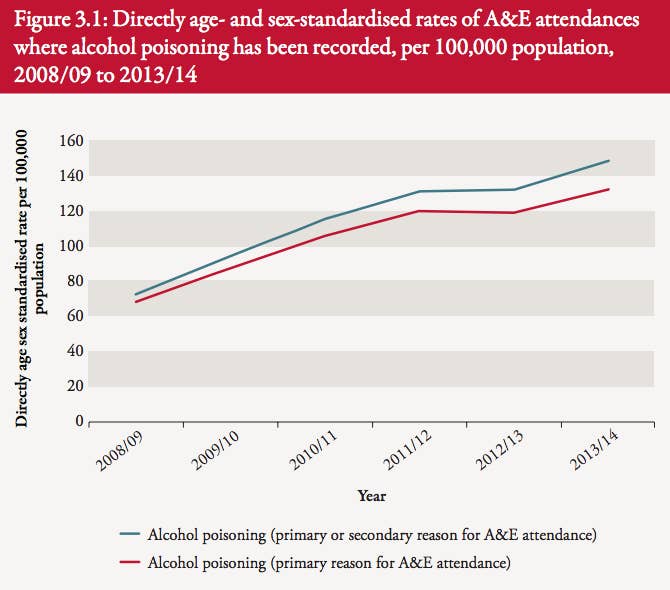
The report found that young people were the most likely to be admitted to hospital with alcohol poisoning.

Older people, on the other hand, are much more likely to be admitted for overnight stays, which are usually for other alcohol-related conditions, such as liver disease.
"Both A&E admissions and overnight stays are most common in the more deprived socioeconomic groups," said Currie. The study says that admissions were "three to four times higher in the poorest fifth of the population".
The results are something of a surprise, because in general, we're drinking less.
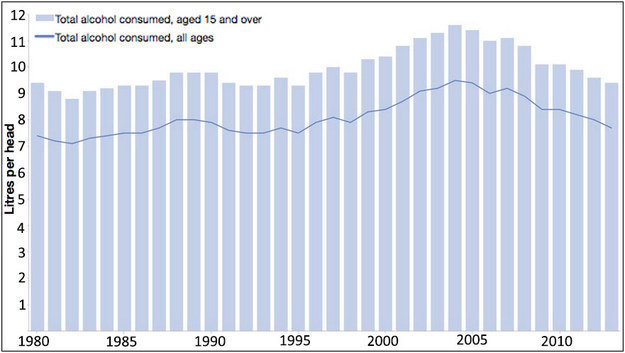
Binge drinking is down, as well.
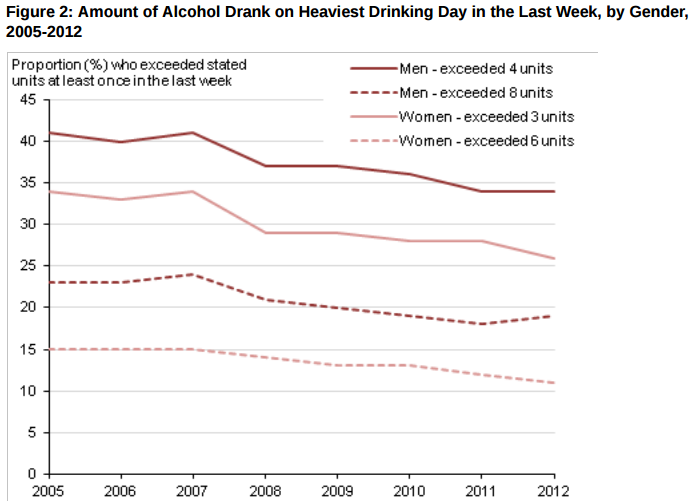
People under 24 have had the most dramatic drop-off in drinking…
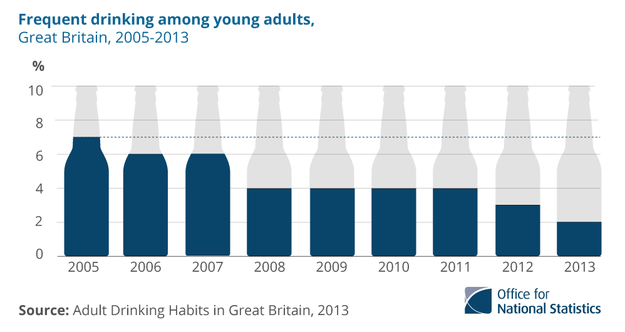
…and their binge-drinking has dropped dramatically too.
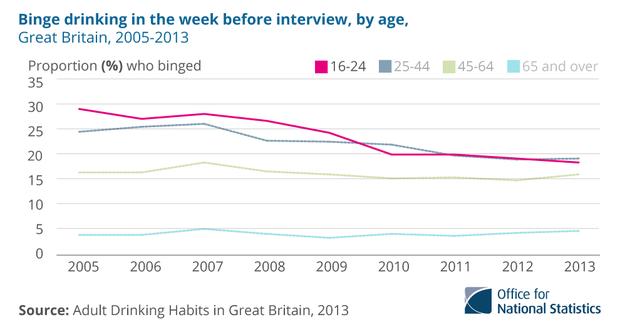
Young people are also the most likely to say that they're teetotal.
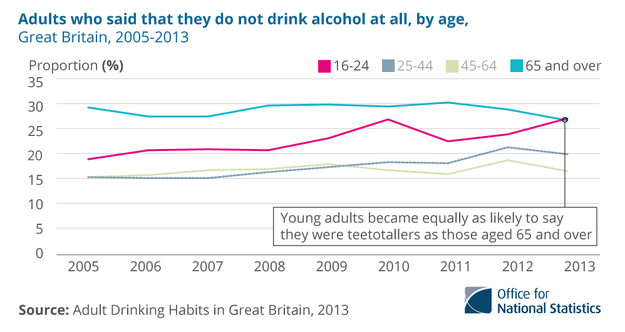
It also seems to disagree with a report by Public Health England, earlier this year, which found that alcohol-related hospital admissions among under-18s are down 41% since 2006.
Hospital admissions among adults were up slightly, but nowhere near as dramatically as the Nuffield report found.
So what's going on? It could be that while drinking in general is down, a subset of heavy drinkers is getting worse.
Currie told BuzzFeed News that while "there does appear to be a slight drop in overall consumption over recent years", the people turning up at hospital are not representative. "What we're looking at is trips to hospital," she said, "so that's hardcore drinkers, people who are experiencing much more harm."
Another possibility is that it is partly an artefact of the way the statistics are collected.
For instance, admissions data records nowadays tend to record more separate reasons for admission. If any one of them is alcohol-related, it would show up on this data.
"We've done our best to rule that out," says Currie, "but it's very hard to untangle this data. A&E data in particular has been improving in quality over time." That makes it harder to compare across years. Currie thinks that even taking that into account, though, there is a real trend towards more hospital admissions due to alcohol.
Whatever's going on, and despite the fall in overall consumption, alcohol is still a problem for British health.
The report says that 18% of men and 13% of women drink at harmful levels, and there were over a million alcohol-related hospital admissions. More than 1 in 3 GP visits are estimated to be related to alcohol. It adds that the "true impact of alcohol on the health service is likely to be higher than this, as care provided to address the direct or indirect consequences of alcohol consumption is difficult to ascertain".
Rosanna O'Connor, director of alcohol and drugs at Public Health England, said in a statement to BuzzFeed News: "Binge drinking and long-term alcohol misuse places a significant burden on our emergency and NHS services, with alcohol-related hospital admissions in England standing at over 1 million every year.
"This report helpfully identifies a range of measures to prevent and reduce the impact of alcohol on services, including the use of specialist alcohol care in hospitals."
